Thai Crypto Platform Compliance Checker
Check if a Crypto Platform is Legal in Thailand
Based on Thailand's Digital Asset Business Act, only licensed exchanges are permitted to operate. Check if your platform meets regulatory requirements.
Required Compliance Standards
On June 28, 2025, Thailand shut down access to five major foreign peer-to-peer (P2P) cryptocurrency platforms overnight. Bybit, OKX, CoinEx, 1000X, and XT.COM disappeared from Thai internet networks. No court order. No warning beyond a one-month notice. Just a block. For thousands of Thai crypto users, their wallets froze. Their trading accounts vanished. And the Thai government didn’t apologize.
Why Thailand Pulled the Plug
Thailand didn’t ban crypto. It banned foreign unlicensed platforms that ignored its laws. The Securities and Exchange Commission (SEC) made it clear: if you want to serve Thai customers, you need a license. No exceptions. Not even for big names like Bybit or OKX, which had millions of users in the country. The official reason? Crime. Money laundering. Scams. The SEC said over 80% of crypto-related fraud cases in 2024 involved unlicensed foreign platforms. These sites let users trade anonymously, bypassing Thailand’s strict KYC rules. Criminals used them to move stolen funds, run fake investment schemes, and launder money from online scams. The government had enough. The crackdown wasn’t random. It followed two Royal Decrees signed on April 13, 2025. The first forced all digital asset businesses targeting Thai users to get licensed by the SEC. The second gave the Ministry of Digital Economy and Society (MDES) the power to block websites without a court order. That’s how fast the shutdown happened.Who Got Blocked and Why
The five blocked platforms weren’t chosen randomly. They were the most popular among Thai users. All five operated as P2P marketplaces - letting people trade crypto directly with each other, often using Thai baht via bank transfers or mobile wallets. That’s where the risks piled up. Unlike licensed Thai exchanges like Bitkub or Zipmex, these foreign platforms didn’t verify user identities. They didn’t report suspicious transactions. They didn’t freeze accounts linked to fraud. And they didn’t pay taxes in Thailand. The SEC called them digital asset exchanges under the country’s Digital Asset Business Act - meaning they were breaking the law just by existing in the Thai market. The penalty? Up to three years in jail, 300,000 baht in fines (about $8,700 USD), or both. Operators caught running these platforms could be arrested. Users? They weren’t targeted - but they were left scrambling.The One-Month Warning That Wasn’t Enough
On May 29, 2025, the SEC announced the ban. Users had until June 28 to withdraw their funds. Sounds fair? Not for most. Many users had large holdings - some over 1 million baht ($28,000 USD). Withdrawing meant converting crypto to cash, transferring to a local bank, and dealing with withdrawal limits. Some platforms suddenly restricted withdrawals. Others slowed down processing. A few even disappeared entirely before the deadline. Reddit threads and Thai Twitter feeds filled with panic. “I had 500 BTC on Bybit. I couldn’t move it in time.” “My bank flagged my transfer as suspicious.” “I lost 200,000 baht because the platform froze my account.” The SEC didn’t offer extensions. No help desk. No refund program. The message was clear: if you used an unlicensed platform, you took the risk. The government’s priority was systemic safety, not individual losses.
Who Else Got Dragged Into This
Thailand didn’t just block crypto sites. It made banks, telecoms, and social media companies responsible too. If a bank processed payments for an unlicensed crypto platform, it could be fined. If a messaging app like Line or Telegram was used to coordinate scams, the company could be held liable. If a social media influencer promoted a banned exchange, they could face legal action. The SEC started requiring all licensed exchanges to report suspicious activity in real time. Banks had to flag transfers to known blacklisted wallets. Telecom providers had to block SMS links to scam sites. The net was widening. This wasn’t just about crypto. It was about controlling the entire digital financial ecosystem. Thailand wanted to make it impossible for criminals to use the country as a laundering hub.What’s Still Allowed
Thailand didn’t ban crypto. It just made it legal only through licensed local players. Bitkub, Zipmex, Krungthai NEXT, and a handful of others still operate. They’re required to:- Verify every user’s identity
- Report all transactions over 50,000 baht
- Freeze accounts linked to fraud
- Pay corporate taxes
- Keep funds in segregated accounts
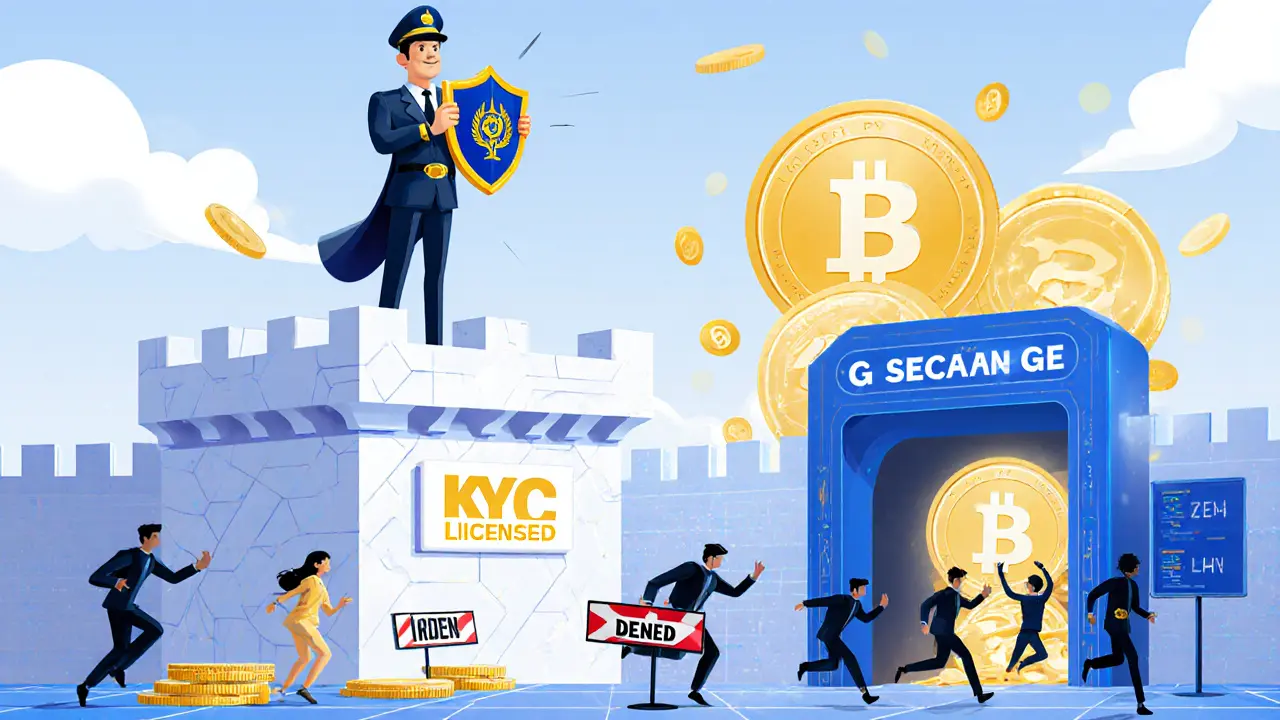
The Ripple Effect
The ban hit businesses hard. Thai startups that relied on international crypto payments now face delays. An e-commerce company in Chiang Mai trying to pay a supplier in India? Can’t send crypto directly. Must go through a Thai licensed exchange first - which adds fees, delays, and paperwork. Cross-border trade is now slower. Compliance costs are higher. Some companies are moving operations to Malaysia or Singapore, where rules are looser. But the government doesn’t care. They’re focused on reducing crime. In the first three months after the ban, reports of crypto-related fraud dropped by 62%, according to the MDES. Arrests of crypto scammers rose by 89%. That’s the metric that matters to them.What This Means for You
If you’re a Thai citizen: stick to licensed exchanges. Don’t trust a platform just because it’s popular. Check the SEC’s official list of approved operators. If it’s not there, it’s illegal - and you’re on your own if something goes wrong. If you’re a foreign crypto platform: don’t try to sneak in. Thailand now has the tools to block you fast. Even if you use a VPN or proxy, your domain will be taken down. Your payment processors will be pressured. Your users will be warned. It’s not worth the risk. If you’re a global investor watching Thailand: this is a model. Other countries in Southeast Asia - Vietnam, Indonesia, the Philippines - are watching closely. Thailand showed you can ban foreign crypto platforms without banning crypto itself. That’s a powerful blueprint.What’s Next?
Thailand isn’t done. The SEC is working on new rules to monitor decentralized finance (DeFi) apps. They’re testing blockchain-based stock trading platforms. They’re exploring digital wallets tied to national ID cards. The goal? A fully regulated, traceable, secure digital finance system - run by Thai institutions, for Thai people. Foreign platforms? They’re not welcome unless they play by Thai rules. The message is simple: you can trade crypto in Thailand. Just not the way you used to.Are foreign crypto platforms still accessible in Thailand?
No. As of June 28, 2025, foreign unlicensed P2P crypto platforms like Bybit, OKX, CoinEx, 1000X, and XT.COM are completely blocked by the Thai government. Access is restricted at the network level by the Ministry of Digital Economy and Society. Even using a VPN won’t restore access, as payment gateways and domain registrations are also monitored and cut off.
Can I still trade cryptocurrency in Thailand?
Yes, but only through Thai-licensed exchanges like Bitkub, Zipmex, and Krungthai NEXT. These platforms comply with strict KYC and AML rules, require user verification, and report all large transactions to the SEC. You can buy, sell, and hold crypto legally - but only on platforms officially approved by the Thai government.
What happens if I used a banned platform and didn’t withdraw my funds?
If you didn’t withdraw your assets before the June 28, 2025 deadline, you likely lost access to your funds. The platforms were shut down and their servers taken offline. There is no government compensation program. Recovery is nearly impossible unless the platform voluntarily cooperates with Thai authorities - which none have done. This is why regulators warned users in advance: using unlicensed platforms carries full financial risk.
Is cryptocurrency legal in Thailand?
Yes, cryptocurrency is legal as a digital asset under Thai law. However, it is not legal tender. You can hold, trade, and use it for payments - but only through licensed exchanges. Mining, staking, and peer-to-peer trading on unlicensed platforms are illegal. The government regulates crypto as a financial instrument, not a currency.
Why did Thailand target P2P platforms specifically?
P2P platforms were the main gateway for fraud and money laundering. They allowed users to trade crypto directly with cash, bypassing identity checks. Criminals used them to convert stolen money into crypto and move it out of Thailand anonymously. Licensed exchanges require full KYC and transaction reporting - P2P platforms didn’t. That’s why the SEC focused on them first.
Can Thai banks freeze my account for using crypto?
Yes. Banks are now required to monitor transactions linked to unlicensed crypto platforms. If you send money to a blocked exchange or receive funds from one, your account may be flagged or frozen. Even transfers to licensed exchanges can trigger reviews if they’re unusually large or frequent. Always use only SEC-approved platforms to avoid banking issues.
Will Thailand ban all crypto in the future?
Unlikely. Thailand is actually investing in blockchain technology. It’s launching government-backed digital tokens (G Tokens) and testing blockchain for securities trading. The goal isn’t to eliminate crypto - it’s to control it. The government wants to capture the benefits of digital assets while eliminating the risks from unregulated foreign players.

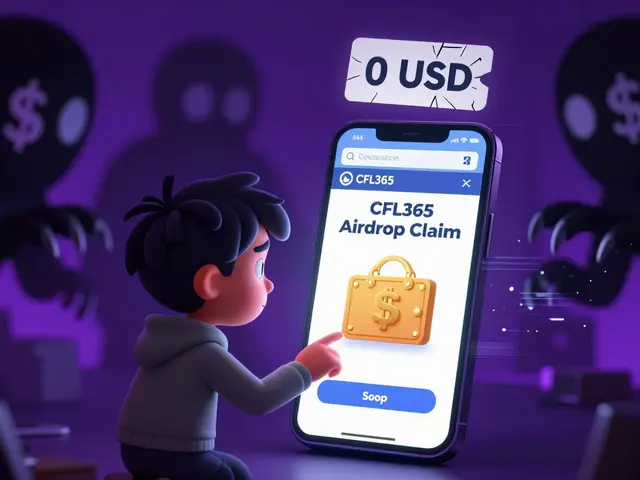
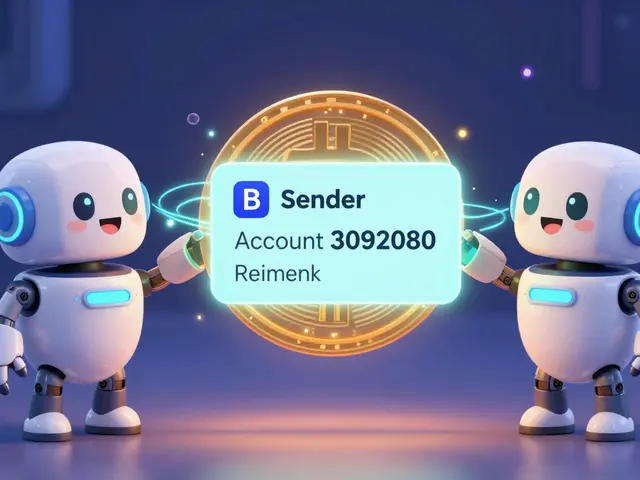
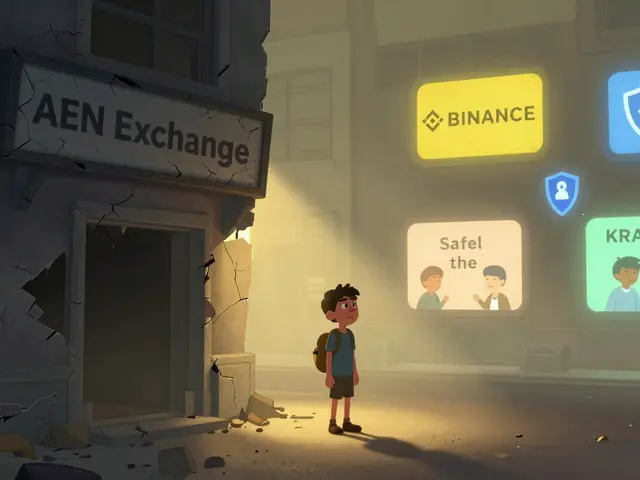

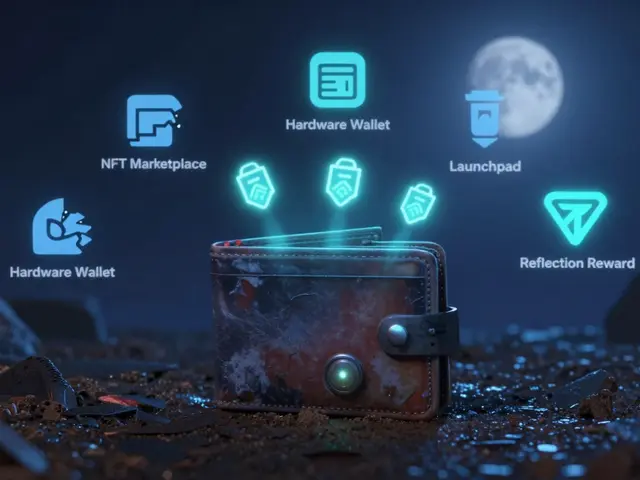

Write a comment